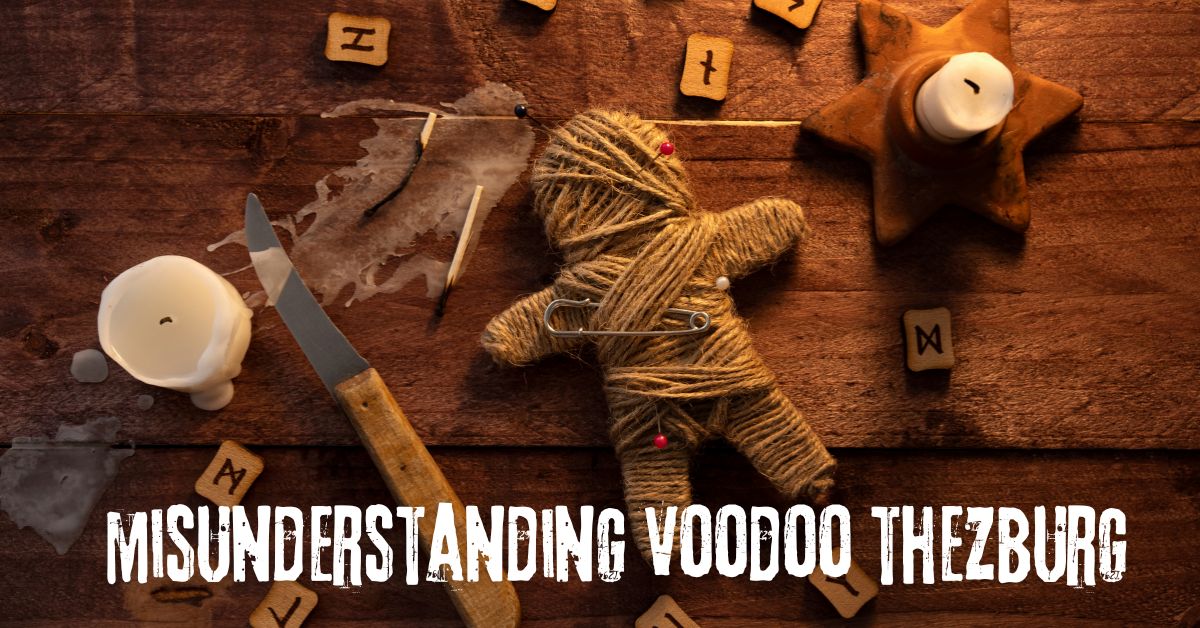When you listen to the word “voodoo,” what involves mind? For many, it inspires photographs of darkish magic, dolls with pins caught in them, and eerie rituals. This distorted view has brought about a sizeable false impression of a rich, religious culture. Voodoo is a misunderstood faith, deeply rooted in African background and influenced by the history and subculture of the Caribbean and the Americas. Uniquely, Misunderstanding Voodoo Thezburg has emerged as an emblematic location for those misconceptions. In this newsletter, we are able to explore the roots of Voodoo, its practices in Thezburg, and the way present day-day society can learn how to separate reality from fiction.
History of Voodoo
Origins of Voodoo in Africa
Voodoo, also called Vodou or Vodun, originated in West Africa, especially among the various Fon, Yoruba, and Ewe humans. It changed into now not a singular faith but as a substitute a complex belief machine that revolved around spirits, ancestors, and the interconnectedness of all matters. These groups held ceremonies to honor their deities and relied on the guidance of religious leaders known as Houngans (monks) and Mambos (priestesses).
You May Also Like: Xucvihkds: An Analysis of Its Applications and Benefits
Voodoo’s Journey to the Caribbean and the Americas
When the transatlantic slaves alternately delivered African people to the Caribbean and the Americas, they carried their spiritual ideals with them. In regions like Haiti, New Orleans, and even Thezburg, Voodoo mixed with factors of Christianity, mainly Catholicism, because of colonization and missionary influence.
The Role of Voodoo in Thezburg’s History
Though now not as extensively diagnosed as Haiti or New Orleans, Thezburg has its personal particular records with Voodoo. As a port city with a combination of African, European, and Caribbean cultures, Thezburg became a melting pot wherein Voodoo practices have been each embraced and demonized.
What is Thezburg?
A Brief History of Thezburg
Thezburg, a small but historically wealthy town, has lengthy been a crossroads of lifestyle and way of life. Originally a trading hub, it attracted humans from across Africa, Europe, and the Caribbean. This mixing of cultures created fertile ground for the exercise of Voodoo; however, it additionally gave upward thrust to misunderstandings and stigmas.
Why Thezburg is Often Linked with Voodoo
Despite its small size, Thezburg became closely related to Voodoo because of its numerous population and the blending of African spiritual traditions with Catholicism. Over time, as those practices became more visible, myths and misconceptions about Voodoo started to emerge.
Common Misconceptions About Voodoo
Voodoo as Black Magic
One of the most persistent myths about Voodoo is that it’s far synonymous with black magic or evil rituals. This could not be similarly from the truth. Misunderstanding Voodoo Thezburg is a faith that seeks concord among the religious and material worlds. Its rituals are regularly targeted on healing, safety, and conversation with ancestors and spirits.
The Hollywood Effect on Voodoo
Movies and TV suggests have executed little to assist the picture of Voodoo. From horror movies depicting dark and threatening rituals to the portrayal of Voodoo dolls as gadgets of harm, Hollywood has distorted Voodoo for amusement purposes, further alienating the public from its genuine nature.
The Role of Media in Perpetuating Myths
Media insurance, particularly in instances of political unrest in areas like Haiti, has additionally contributed to the demonization of Voodoo. News stores regularly frame Voodoo as mysterious and perilous instead of acknowledging its rich cultural importance.
The True Spirituality Behind Voodoo
Voodoo as a Religion, Not a Cult
Contrary to famous belief, Voodoo is a faith, now not a cult. It is recognized as legitimate faith in nations like Haiti, and tens of millions of human beings worldwide exercise it with reverence and admiration. It specializes in worshiping spirits, referred to as Loa, who act as intermediaries among the human global and the divine.
The Beliefs and Values of Voodoo Practitioners
Voodoo “misunderstanding voodoo thezburg” emphasizes network, stability, and recognizing ancestors. Its followers accept as true a deep connection between the spiritual and physical geographical regions, and they perform rituals to honor spirits and are looking for their guidance. Love, circle of relatives, and the well-being of the network are vital to its teachings.
The Significance of the Spirits, Ancestors, and Ceremonies
Ceremonies in Voodoo are elaborate and full of meaning. Offerings, music, and dance are used to ask the spirits to talk with the residing. Ancestor worship is likewise key, as Voodoo practitioners trust that their departed circle of relatives participants still play a lively function in their lives.
Voodoo Practices in Thezburg
How Voodoo is Practiced in Thezburg
Misunderstanding Voodoo Thezburg has a small, however energetic, community of Voodoo practitioners. They hold ceremonies in each public and personal space, blending traditional African elements with nearby customs. These rituals regularly involve making a song, drumming, and dancing to invoke spirits.
Key Rituals and Ceremonies Unique to the Region
In Thezburg, Voodoo rituals often replicate the metropolis’s blended cultural history. For instance, positive gala’s integrate elements of African spirituality with Catholic saints’ days, growing a unique combination that cannot be found everywhere else within the global.
Community Involvement in Voodoo Traditions
Voodoo may be very much a communal religion. misunderstanding voodoo thezburg Family and friends come collectively to take part in ceremonies, percentage food, and guide each other spiritually. In Thezburg, these community gatherings are important to maintaining the tradition and passing it right down to future generations.
Conclusion
In wrapping misunderstanding voodoo thezburg our exploration of Voodoo, particularly because it relates to Thezburg, it is critical to emphasize that this faith is a rich tapestry of cultural and religious ideals instead of the darkish, misunderstood practice often portrayed in famous tradition. By keeping apart fact from fiction, we can respect Voodoo’s true essence—its cognizance on community, recuperation, and the profound connections between the living and the non-secular nation-states.
As misconceptions persist, it’s critical for both practitioners and outsiders to interact in open dialogues, instructional tasks, and cultural exchanges. This no longer most effectively promotes know-how but additionally enriches our collective appreciation for various traditions and ideals. So, the following time you listen to the phrase “voodoo,” recall that there may be a whole lot extra beneath the floor—layers of history, spirituality, and resilience waiting to be understood.
FAQs
1. What are the most common misconceptions about Voodoo?
Common misconceptions about Voodoo include the belief that it is synonymous with black magic, that it involves malevolent practices, and the oversimplified notion that it is a cult. In reality, Voodoo is a complex religion focused on spirituality, community, and ancestral reverence.
2. How can we separate fact from fiction when it comes to Voodoo?
To separate fact from fiction, it’s essential to engage with credible sources, learn from practitioners, and explore scholarly research. Understanding the historical context and cultural significance of Voodoo helps dispel myths.
3. Is Voodoo dangerous?
Voodoo, like any religion, is not inherently dangerous. While there may be practitioners who misinterpret or misuse its teachings, the core beliefs of Voodoo focus on healing, community, and respect for the spiritual world.
4. How is Voodoo practiced in modern times?
Modern Voodoo practices vary widely, often reflecting local cultural influences. In many communities, rituals are held to honor spirits, seek healing, and maintain cultural identity. In places like Thezburg, Voodoo is intertwined with local traditions and communal gatherings.
5. What is the best way to learn more about Voodoo?
The best way to learn more about Voodoo is to read books and articles by reputable authors, attend cultural events, and, if possible, engage respectfully with practitioners. Open-mindedness and a willingness to learn are key to understanding this rich tradition.





















